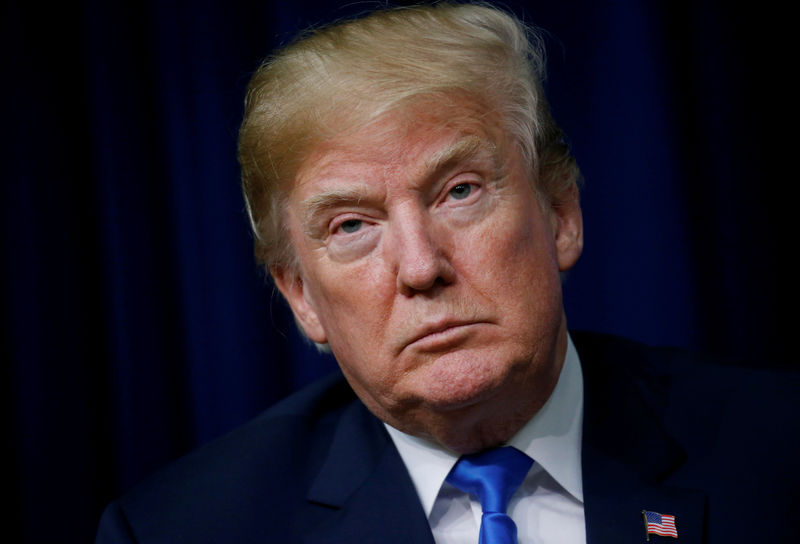By Jarrett Renshaw
NEW YORK (Reuters) - President Donald Trump is seriously considering abandoning efforts to remake the nation's biofuel laws after wading deep into an issue that divides some of his core constituencies, according to three sources familiar with the administration's thinking.
Advisers have urged Trump to instead let Congress tackle the biofuel reforms, but use the threat of administrative action to help rival lawmakers come together and solve the intractable issue.
The U.S. Renewable Fuel Standard (RFS) has created reliable demand for corn farmers in the nation's heartland, but merchant refiners like Valero Energy Corp (NYSE:VLO) say the costs to comply with the program have taken a huge financial toll.
The largest and oldest U.S. East Coast refinery, Philadelphia Energy Solutions, filed for bankruptcy in January, blaming its financial woes on the biofuels program and drawing Trump into the debate over fears of blue-collar job losses in the politically important state of Pennsylvania.
Trump's efforts to reform the program have angered lawmakers and farmers from red states like Iowa and Nebraska and U.S. oil majors that do not mind if their competitors struggle, leaving the president little safe political ground to maneuver.
The White House has hosted a series of meetings in recent months in an attempt to change the decade-old RFS, which requires refiners to cover the price of blending biofuels like corn-based ethanol into the fuel supply, creating a lucrative market for growers but a headache for refiners who say it costs them a fortune.
Changes considered included potentially capping the price of blending credits that refiners must acquire to show compliance with the law. But the effort exposed gaping divisions between the corn and oil lobbies, along with disagreements between integrated refiners like BP (LON:BP) Plc and Exxon Mobil Corp (NYSE:XOM) and merchant refiners like PBF Energy Inc, over solutions.
But any action by the White House would upset at least one faction of Trump's base, according to the sources, who asked not to be named as they were discussing a confidential matter.
“This seems like the logical place to land, given all the unrest,” said one of the sources.
Two of the persons said Trump had agreed to heed his advisers' recommendation to leave the issue to Congress, while leaving open the option to act if Congress balks. The third source said it was not yet clear what Trump would do.
White House spokeswoman Kelly Love did not respond to multiple requests for comment. Officials at the Environmental Protection Agency - which administers the RFS - and the U.S. Department of Agriculture also did not respond to requests for comment.
EPA head Scott Pruitt and Agricultural Secretary Sonny Perdue have been compiling a list of executive and administrative-level options for Trump to consider to tweak the RFS, the sources said. The list would likely include caps on compliance credits and lifting summertime restrictions on the use of higher-ethanol blends of gasoline.
Two sources said the White House would likely make an announcement on its plans in the next two weeks.
Shifting the issue to lawmakers would put the spotlight on U.S. Senator John Cornyn, the Texas Republican who has been leading legislative efforts to reform the RFS. Cornyn's office says it has been trying to win support from the corn and oil industries for a comprehensive reform bill that is still being drafted.
Last year, independent refiners and billionaire Carl Icahn, who owns refining company CVR Energy, sought to convince the administration to overhaul the rule unilaterally.

Icahn came under fire for those efforts during a brief period when he was advising Trump, as he attempted to broker a deal with the biofuels industry to change the rule.